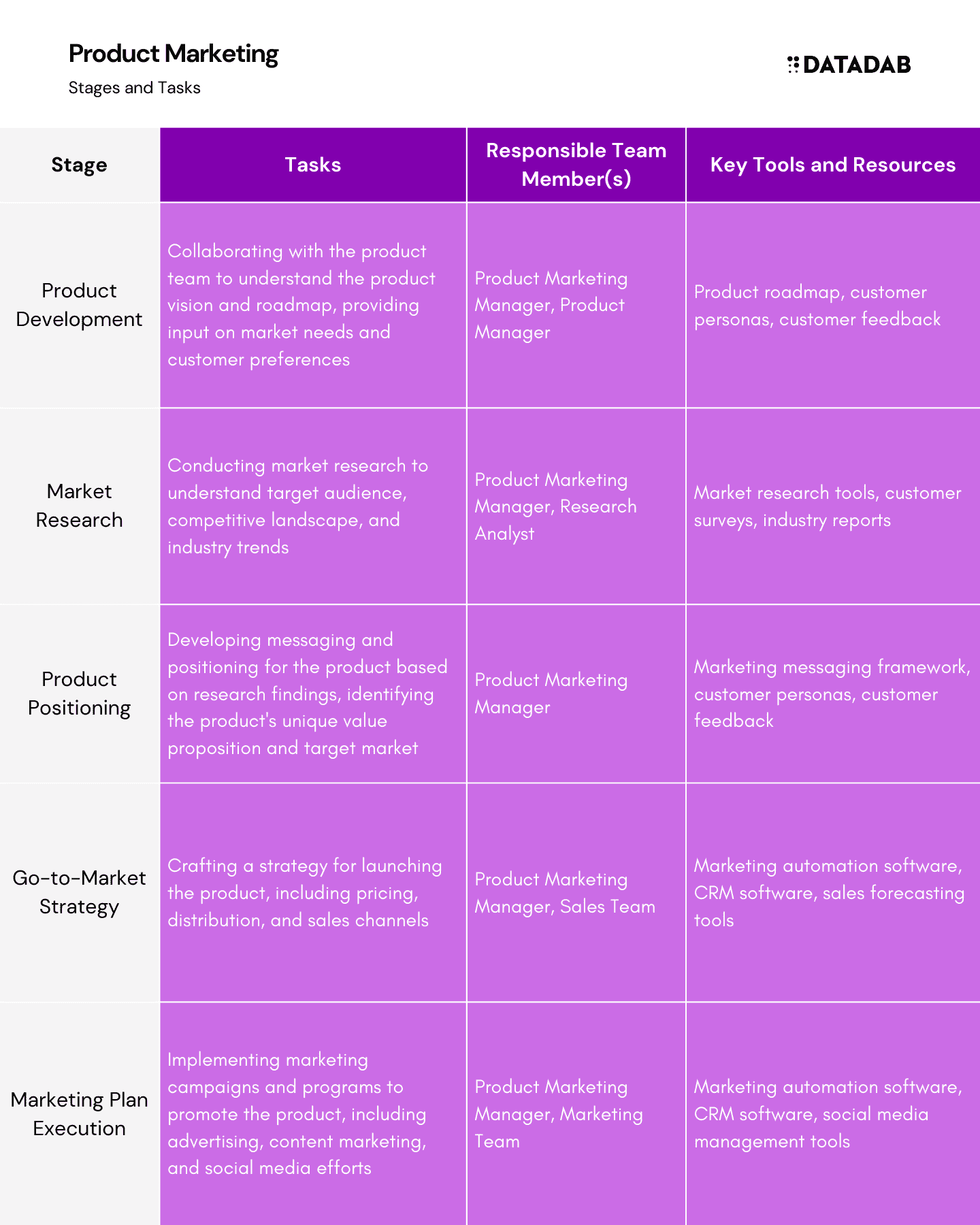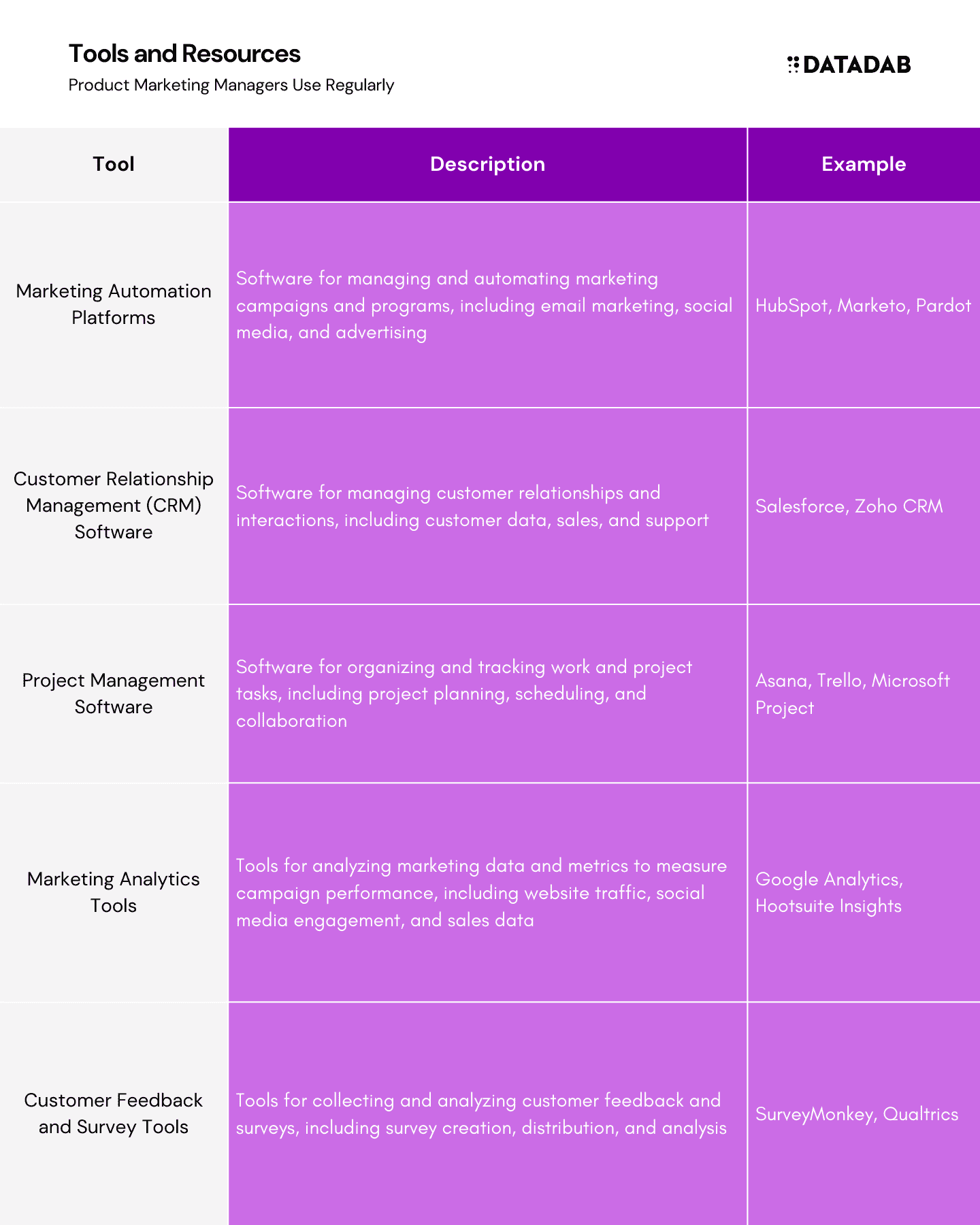Not all marketing roles are created equal.
Product marketing managers are not all the same. There’s a bit of a spectrum for what product marketers do. Some have more focus on the product side, and others have more focus on the marketing side. The best PMMs can wear both hats at once and make things happen by getting great products out into the world while also building solid relationships with customers and prospects alike.
It may be tempting to think that any ol' marketer could do this job—and while they might be able to learn some of its skills eventually, it takes time and practice (and probably some tears along the way) before you feel like you've got an innate grasp of these roles' unique combination of skills, experience, and tools required for success!
But wait—there's more! It's crucial not only that your PMM understands how their work aligns with business goals; it's just as crucial that they have an intuitive sense about how each decision will impact those goals down-line in terms of user experience or brand image.


Product Marketing Managers (PMMs) are the voice of the customer.
As a Product Marketing Manager, you are the voice of the customer. Your job is to understand, observe and learn what they want and need so that your company can provide them with better products and services. You’re also responsible for getting that information out to internal stakeholders like sales, marketing, and product management teams—as well as external stakeholders like investors and analysts—so they can make informed decisions about where their company should be going next.
The more information you have about how customers use your products, how they feel about them, and what frustrates them or excites them—the better equipped you will be to help everyone else on your team understand why it’s not enough just to build new things; we have to stay focused on making things customers actually want!
There's more to product marketing than creating a product page.
There are actually a lot of different types of product marketing, and they're all important if you want to make sure your company is getting the most out of its products.
Product marketing starts with the product page—that's where customers will find out what your product is and what they can expect from it. But that's just one part of the puzzle. Product marketing also includes customer reviews and testimonials, press releases about new products or services, social media posts about your brand, and even media coverage about your company or its products. All these things contribute to how people perceive your brand and influence how likely they are to buy from you.
Don't just focus on creating a great product page—make sure you're putting an equal amount of effort into all aspects of product marketing as well!
Product marketing managers are responsible for the overall customer experience. They're focused on creating a product that solves a real problem, and they need to understand who the people using their products are.
They create and maintain content that educates customers on what they should expect from those products. This includes everything from blog articles to social media posts to sales emails—everything related to making sure you have a solid understanding of what your customers need, whether you're sending them an email or trying out a new feature in your product.

PMMs must be able to create compelling materials and presentations.
As a PMM, you will be required to create compelling materials and presentations. A product page should be the most persuasive marketing material you have. If people look at your product page and don't immediately feel compelled to buy it, you might not have executed your job well. The same goes for landing pages, ads, emails, and other marketing materials—they all must be so good that readers can't help but convert into customers.
As a PMM, you've also got to win people internally over with your ideas, so you can get them on board with whatever crazy new project you're proposing.
And it's not just about selling ideas—it's also about selling yourself as an effective leader who can get the job done effectively. As a PMM, you're always selling yourself! Make sure your documents and presentations are as polished as possible; make sure everything is clear and easy-to-follow; make sure everyone knows exactly what their role is and how it fits into the big picture.
You don't have time for confusion or ambiguity; if anything is left up in the air at the end of any meeting or training session, something needs work.
A PMM also needs to work closely with marketing teams on other products to ensure they're equally well-crafted and compelling.
PMMs drive go-to-market strategies.
Product marketing managers are responsible for the overall strategy, launch, and execution of a product.
While most established companies have separate roles for product management and marketing, PMMs can be tasked with many of the shared responsibilities typically undertaken by these two groups. This includes:
- Leading the go-to-market strategy and planning
- Creating the product roadmap
- Defining the vision and value proposition of your product or service to customers, partners, investors and employees
- Managing all aspects of your company’s marketing communications (including website copywriting)
- Optimizing performance through testing new channels—such as paid advertising—and measuring ROI
The secrets that make PMM successful.
If you're a PMM, sometimes it can feel like everyone has the answers except you. But some secrets make PMMs successful, and we want to share them with you!
- The first secret to being a PMM is knowing your customer, product, channel, and competition. You can't manage anything effectively if you don't know what you're managing. It sounds like common sense, but it's still an important point.
- You have to be able to see the big picture. You need to be able to look at a project holistically and understand how all the pieces fit together to make sure it stays on track.
- You have to be able to handle pressure. With so much riding on each project, it's easy for pressure to build up around your work—but if you can't handle the stress, then no one else will either.
- You have to have good communication skills. Whether it's communicating internally with co-workers or externally with clients and other stakeholders, communicating clearly and effectively is essential when it comes time for making decisions about your projects' future directions or implementing new strategies into existing plans.
A Product Marketer wears many hats, but they are all in service of the customer experience.
As a Product Marketer, you wear many hats. You represent your product team to internal stakeholders. You create compelling content that showcases what your company does best in the marketplace. You drive go-to-market strategies that make the customer experience better for everyone involved.
You are responsible for everything from developing the product roadmap to identifying and prioritizing customer needs to managing marketing campaigns. You're also responsible for creating a vision for how customers will interact with your product and then working with engineers to make it happen. No matter what's on your plate, you'll always be thinking about improving the customer experience—and that means understanding people.
To do this well, you need to have empathy: You need to be able to put yourself in your customers' shoes, see things through their lens, and understand what makes them tick. Product marketers have an incredible opportunity to use their skills and talents to create products that people love using—and that's what makes this job so fulfilling!
But at the core of all these tasks is one thing: You're always thinking about making your product better for customers—and how to communicate that value to them, so it resonates with them on an emotional level.







